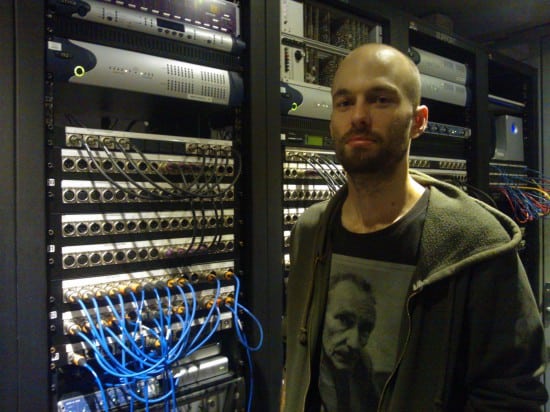Hi, my name is Harvey O’Sullivan and I’m the Mastering Assistant here at Studios 301.
The nature of 301 is very dynamic and being an assistant requires a “Jack-of-all-trades” attitude. My responsibilities cover the daily maintenance of our 3 dedicated Mastering rooms, as well as preparing production masters.
A typical day for me could be breaking out the Studer to transfer some 1/4 inch tapes, replacing a broken woofer driver in one of our monitors or helping our workshop technician, Steve Crane, test modifications to our custom built AES digital signal router, the DES. Every day has its own set of tasks, be it scheduled or unexpected.
With so many projects being worked on by our mastering engineers, on multiple computers, we heavily on our network to power the backup system, nicknamed ‘Captain Tom’. This means ensuring everything is always in sync and constantly backed up across the entire complex.
That said, a lot of the Mastering Assistant’s job is, quite frankly, plugging stuff in, and testing if stuff works. It certainly helps to have a good understanding of technology and knowing how to troubleshoot on your feet.
Here an example of the ever-expanding album of “photos I take at work”:
The core of my role however, is making up Production Masters. The majority of masters end up as one of two formats: a DDP or PMCD.
A DDP is a file format that is sent off to CD manufacturing plants to press. A PMCD is a standard audio CD that has been burnt under special conditions to avoid any errors during the burning process. Its a physical object that operates as the master disc.
DDPs offer a number of advantages over the PMCD format in that they are simply a file format, which can be stored, backed up and sent digitally. It’s a specialised format requiring special software to read and playback. It’s at this point I will also enter additional track information data such as CD-TEXT and ISRC codes (serial numbers for music files) into the DDP.
PMCDs have to be treated with care, though they do come with a reference audio CD for listening to. You wouldn’t want to be chucking your PMCD in the car stereo.
Before sending these to the client, I’ll listen over the entire project, whether it’s a single, an EP or a full album; listening for any small glitch that might have snuck its way through. This requires a keen ear for detail and a great deal of concentration. This task is the absolute last step in the mastering process and is a deadly crucial one – because failure here could potentially result in an audible glitch being present on thousands of CD that have just been manufactured at great expense!
At the end of the day, what I love is getting to work with music every day and being surrounded by creative and talented people.
[Harvey O’Sullivan has been the Mastering Assistant at Studios 301 since January 2013]

Leave a Reply